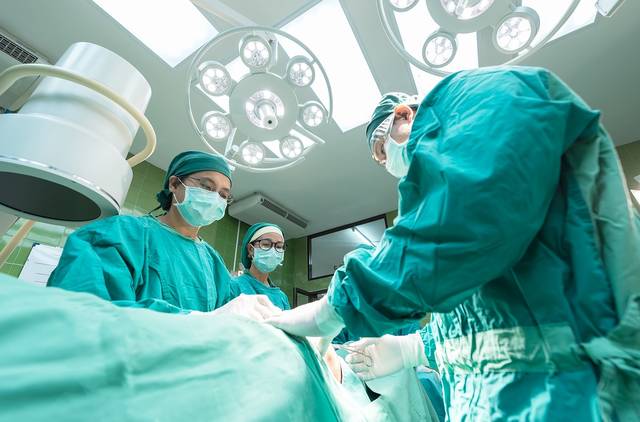https://triblive.com/opinion/editorial-when-elective-surgeries-are-essential-to-health/
Editorial: When ‘elective’ surgeries are essential to health

“Elective surgery.” The term sounds almost frivolous. It conjures up images of nose jobs and breast implants. There is no reason to get a tummy tuck during a pandemic, right?
So when government officials are recommending that hospitals discontinue elective surgery, that may sound reasonable.
“This will free up bed space and free up hospital capacity for people struggling with the coronavirus and it’ll also free up the equipment that our hospital workers need,” said Vice President Mike Pence in Friday’s daily coronavirus task force update. Gov. Tom Wolf’s order Thursday curtailing “non-life-sustaining” businesses also included prohibitions of elective procedures.
This would make sense if “elective” was synonymous with “unnecessary.” But it’s not.
Elective surgeries are the kind that can be scheduled. That doesn’t mean they are cosmetic. Sometimes it’s a quality-of-life situation like a cataract surgery. Sometimes it’s about pain, like kidney stones or a knee replacement.
And sometimes elective is utterly critical. It’s a heart bypass or the placement of a stent in a blocked valve that is the difference between a heart attack. It’s a lumpectomy or the removal of a mole that could be a melanoma. It’s a cesarean section planned because of a mother’s medical history.
On Friday, UPMC has said it will not discontinue elective surgery, despite the governor’s order. “We shouldn’t stop providing care if we think we can do that safely,” said Dr. Graham Snyder, UPMC’s chief of infection prevention. UPMC’s leaders are right to follow their confidence in their system’s capacity.
On the other hand, Allegheny Health Network supported Wolf’s move, and called Wolf’s directive “an appropriate decision.” Excela has canceled surgeries that are “non-essential or elective in nature” — a distinction that seems to illustrate relative importance.
These hospital systems aren’t wrong, either.
Hospitals, doctors, nurses and the rest of the medical community are the people we have to trust to get us through the coronavirus pandemic in one piece, as healthy as we can be. But that means we have to trust them to know when a procedure is important.
“I do not believe there should be a blanket recommendation or a one-size-fits-all approach. During this pandemic, there are going to be other health needs that are going to need to be addressed,” said Pittsburgh-based Dr. Amesh Adalja, an infectious disease specialist and senior scholar at the Johns Hopkins Center for Health Security.
We can’t guard health by putting it at risk, and we can’t help doctors by short-circuiting their ability to make medical decisions.
Copyright ©2026— Trib Total Media, LLC (TribLIVE.com)
